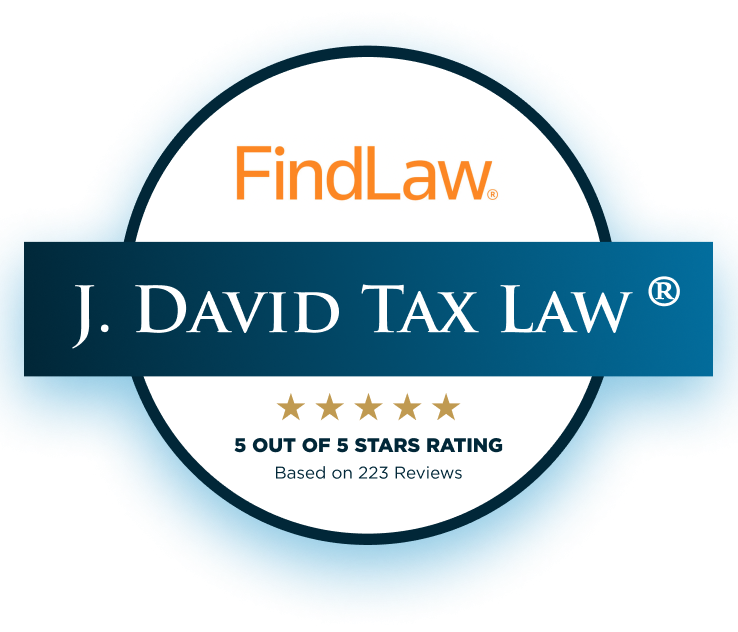Expert Tax Solutions for Every Situation
J. David Tax Law offers comprehensive services to help resolve your tax challenges. Explore our specialized areas of practice to find the right solution for your situation.
Don’t know exactly what you need? Start typing and explore our comprehensive legal services.
Find the Right Tax Service
Tax Debt Solutions Find relief from tax debt through our tailored solutions.
Offer In Compromise
Settle your tax debt for less than you owe through this IRS-Approved program.
Fresh Start Program
Qualify for relief with the IRS’s Fresh Start Program and reduce the burden of your debt.
Currently Not Collectible
Temporarily stop IRS collection activities if you cannot affor to pay your debt.
Penalty & Interest Relief
Eliminate or reduce penalties and interest with our expert assistance.
First Time Penalty Abatement
Waive your first time penalty through our targeted first time penalty abatement service.
IRS Payment Plan
Secure immediate release of levies and garnishments to protect your income.
IRS Enforcement ActionsProtect your assets and stop aggressive IRS collection tactics.
IRS Appeals
Avoid IRS levies and asset seizures with our quick-response legal strategies.
IRS Asset Seizure
The IRS seizes assets when taxpayers fail to pay their tax liabilities after multiple warnings.
IRS Debt Negotiation
Get help if the IRS is threatening to take your property.
Tax Levy
Remove a tax levy and regain access to your funds.
Tax Lien
Resolve liens before they demage your credit or financial standing.
Wage Garnishment
Stop IRS wage garnishments and recover your full paycheck.
IRS Disputes & AuditsDispute IRS findings or resolve an audit with our experienced team.
Tax Audit
Facing and audit? Our team will represent you and guide through the process.
IRS Criminal Investigations
Protect yourself during and IRS Criminal Investigation with our experienced legal support.
Innocent Spouse Relief
Get relief if your spouse’s tax mistakes or fraud should not be your responsability.
Specialized Tax ServicesAccess specialized assistance for unique tax situations.
IRS Passport Revocation Or Denial
Resolve tax debts before they lead to passport issues.
Tax Litigation
Protecting your business and personal assets through strategic tax litigation.
Tax Filing & Compliance Ensure that you are compliant with IRS tax filing requirements.
Unpaid Taxes
Resolve sales tax issues for your business and avoid unnecessary penalties.
Payroll Tax (940 & 941 Payroll Tax)
Stay complaint with payroll taxes and avoid costly penalties.
Why People Trust
J. David Tax Law®

A+ Rated with the Better Business Bureau (BBB)

Only a Tax Attorney Will Handle Your Case

Thousands of successful outcomes for our clients

100% Free, No-Obligation Consultation

We provide tax solutions for our clients who have IRS and state tax debts, unfiled returns, audits, etc. We advise you on future compliance that enables your individual or business tax problems to be behind you for good.


